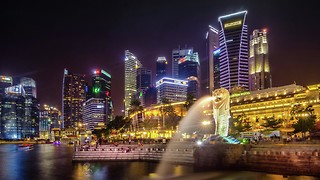King’s Flag: Symbolism can’t be Dictated
King’s hammer and sickle remains for now, but for Seva Karpauskaite, the debate over its meaning is about much more than student radicalism

Last Saturday, King’s held hustings to begin the process of choosing a new flag to replace the hammer and sickle that has hung in the College bar since 2004. At the end of last term the student body voted to replace the flag on the basis that it is the flag of the USSR – offensive to many and not one we wanted in our communal space.
To my disappointment, this motion was struck down on the grounds of a technicality: the flag in the bar was adopted in 1955, two years after Stalin’s death. The rationale is that the flag is therefore symbolic of de-Stalinisation that saw ‘sweeping reforms’ and ‘drastic liberalisation,’ including the abolition of the Gulag system.
The seriousness of historical events has been turned into a petty ‘spot the difference’ game (the flags are almost identical), which has renewed the worst episodes of insensitive behaviour associated with this entire discussion.
The motion to keep the flag (ironically, drafted by a historian) is historically inaccurate. It mistakenly conflates different stages of the de-Stalinisation processes. The first part of it was a struggle for power within the Soviet leadership after Stalin’s death. The turning point only came about when Khrushchev gave a speech in 1956, which marked the very first moment when Stalin’s dictatorial rule and methods where officially denounced.
It is estimated that five million people were still incarcerated in Gulags between 1956-1957; the institution itself was only abolished in 1960. The superficial distinction between Stalinist and post-Stalinist regimes, and accompanying comparison between dictators, is in itself directly offensive to many; it is degrading to say that the post-Stalinist regime was better. Most people living under it were affected by the ‘Soviet Communist Project’ as a whole. The reasoning of those who claim that the original motion to remove the flag is ‘historically inaccurate and misleading’ have not themselves produced a historically sound case.
Without any debate as to what the flag means in the so-called ‘post-Stalinist context,’ and without explaining why this caveat makes a flag more acceptable, an illogical jump to keep the flag was made. Indeed, when questioned about the post-Stalinist atrocities, the proposers of the new motion argued that technicalities don’t matter. They were now arguing that the justification for keeping the flag is its contemporary history as a significant part of the proudly political student culture at King’s. People have claimed that it represents King’s activism and radicalism. Such a stance is close-minded, internally incoherent and insensitive.
My father, a son of deportees, was born in Siberia in 1959. My childhood involved listening to gruesome stories and reading survivors’ memoirs. I became a sharer in their histories; from physically cutting accounts: “A line of about twelve men formed by each woman and the Kolyma ravishment began. When it was over, the dead women were dragged away by their feet; the survivors were doused with water from the buckets and revived. Then the lines formed up again”, to the briefest images: “we brushed from our babies the bedbugs that fell from the ceiling like sand,” and to more horrifying episodes: “a cigarette was put out on the prisoner’s skin and after urinating on his face, the officer turned to use a machine designed for squeezing fingernails.” These stories are the memories of people still living, and many of us have direct threads and painful echoes linking us to them. Being told that the flag hanging in the bar shouldn’t offend me because it was instituted in 1955 is simply upsetting.
Questions of symbolism have abounded in this debate. Should we protect or oppress the voices of those who feel disturbed because of the presence of the flag? What gives us the right to forbid the memories and emotions of others, to say that our apathy should be consumed as a remedy for their subjective sentimentality? Emotional experience is subjective. To claim that the flag can represent whatever we decide it should is to misunderstand how symbolism works. You can’t forcibly offer a new symbolic meaning on the flag of the USSR.
What matters is precisely subjective experience, since flags and symbols are used in reference to inner systems of beliefs and values that arouse feelings associated with them. Only those who have never experienced Soviet Communism could celebrate such a symbol as the embodiment of their radicalism. The recognition of this association, and the knowledge of what the flag stands for to so many fellow students, should make everyone earnestly question why this particular flag should be used to represent us all. The inability to empathise when people clearly state that “it hurts to see that flag up there” is appalling.
It is always easier to be stubborn and apathetic, refusing to hear the pleas of the affected parts of the student body. But to those who want to keep the flag, I ask: what makes you claim that this particular flag is the best way to encapsulate our spirit? Is it the notoriety associated with it, or the perverse obstinacy to keep things as they are because you can’t be bothered to engage with the issues at hand?
I have come to be ashamed of belonging to this political community. It has been transformed into a kindergarten playground of self-proclaimed ‘revolutionaries’ and ‘radicals,’ who have conquered sensibility and openness towards those who are directly hurt by these childishly stubborn or immaturely apathetic political games.
Have any views on this week’s comment pieces?
Tweet us @VarsityUK, or write in to letters@varsity.co.uk
 News / Council rejects Wolfson’s planned expansion28 August 2025
News / Council rejects Wolfson’s planned expansion28 August 2025 News / Tompkins Table 2025: Trinity widens gap on Christ’s19 August 2025
News / Tompkins Table 2025: Trinity widens gap on Christ’s19 August 2025 Interviews / GK Barry’s journey from Revs to Reality TV31 August 2025
Interviews / GK Barry’s journey from Revs to Reality TV31 August 2025 Comment / My problem with the year abroad29 August 2025
Comment / My problem with the year abroad29 August 2025 News / New UL collection seeks to ‘expose’ British family’s link to slavery30 August 2025
News / New UL collection seeks to ‘expose’ British family’s link to slavery30 August 2025









